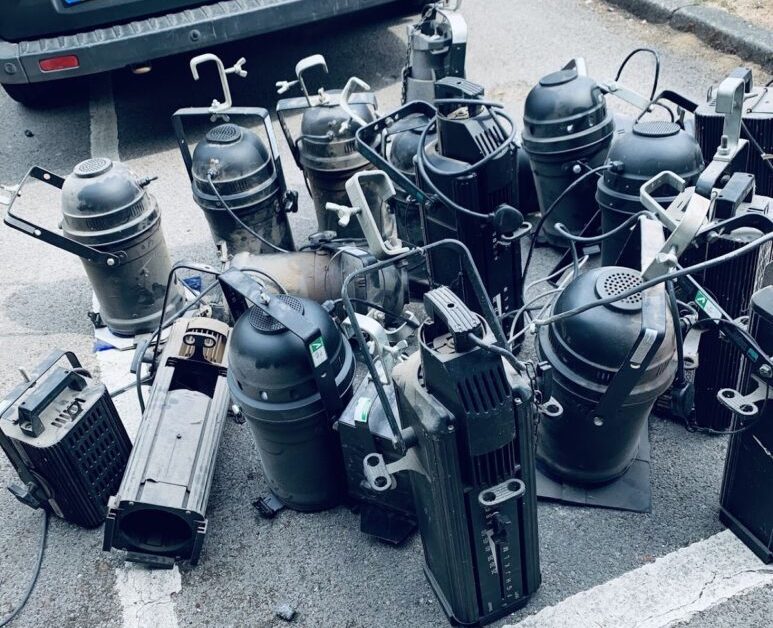Professional lighting maintenance tips

Maintaining professional lighting is important to ensure optimal performance and longevity.
Whether you're a school, theatre, or lighting technician, by following these tips you can get years more out of your lighting and avoid those embarrassing failures whilst mid-production:
-
Regular Cleaning:
Dust, dirt, and debris can accumulate on lighting fixtures, reducing their brightness and efficiency. Regularly clean the fixtures using a soft, lint-free cloth or a gentle cleaner. Avoid using harsh chemicals or abrasive materials that can damage the fixtures.
-
Check for Loose Connections:
Periodically inspect the wiring connections of your lighting system. Loose connections can lead to flickering lights or even pose a fire hazard. Tighten any loose connections or consider calling a professional electrician if necessary.
-
Replace Bulbs and Tubes:
Light bulbs and fluorescent tubes have a limited lifespan. Keep track of their usage and replace them as needed. Regularly inspect for any signs of dimming, flickering, or discolouration, as these may indicate a failing bulb or tube.
-
Use Dimmers and Timers Wisely:
If your lighting system includes dimmers or timers, use them appropriately to optimize energy usage and extend the lifespan of bulbs. Avoid frequently toggling the dimmers or timers, as it can put additional stress on the bulbs.
-
Maintain Proper Ventilation:
Some lighting fixtures generate heat during operation. Ensure that the fixtures have adequate ventilation to dissipate heat effectively. This helps prevent overheating and extends the lifespan of the bulbs.
-
Inspect and Clean Light Diffusers:
If your lighting fixtures have diffusers, regularly inspect and clean them. Diffusers can accumulate dirt and grime over time, reducing light output and overall appearance. Remove the diffusers according to the manufacturer's instructions and clean them thoroughly before reinstallation.
-
Address Flickering Lights Promptly:
Flickering lights can indicate various issues, such as loose connections, bulb failure, or voltage fluctuations. Investigate the cause of flickering lights promptly and address the underlying problem to prevent further damage.
-
Schedule Professional Inspections:
Consider hiring a professional lighting maintenance service for regular inspections and maintenance. They can provide comprehensive assessments, identify potential issues, and perform necessary repairs or replacements.
-
Keep Spare Bulbs and Components:
It's a good practice to keep a supply of spare bulbs and components specific to your lighting system. This way, you can quickly replace any faulty parts and minimize downtime.
Conclusion
Remember, electrical maintenance can be dangerous, so always prioritize safety. If you're unsure about any aspect of lighting maintenance, consult a qualified professional.
Congratulations ! ?
You've finished the final part of our 5 step guide to mastering production stage lighting.
If you have any further questions around lighting, we'd love to help. Please contact us.
About the Author
Joe Morris, Director of Henley Theatre Services runs the events side of the business, designing and creating some of the largest outdoor productions in the UK.

